2017 At a glance
Download as pptx, pdf1 like456 views
The document discusses the importance of effective communication in teams. It highlights various communication styles and strategies to enhance collaboration. Additionally, it provides tips for overcoming common communication barriers.
1 of 102
Download to read offline


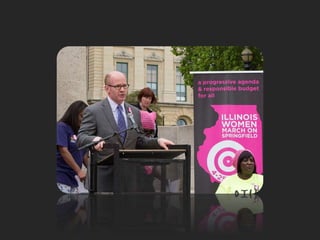

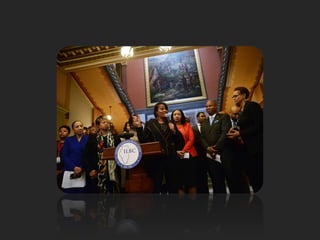
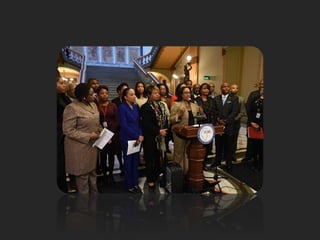
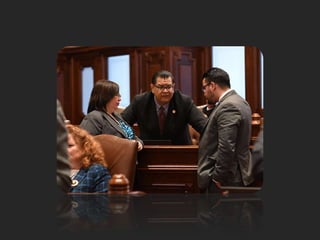

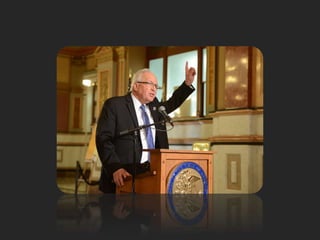
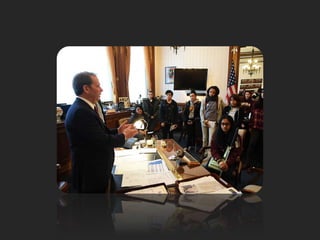
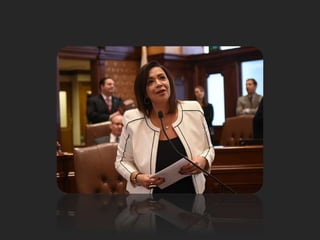
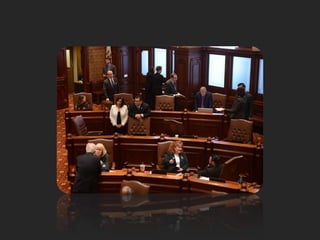
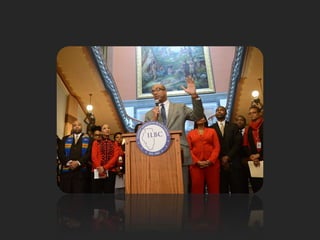
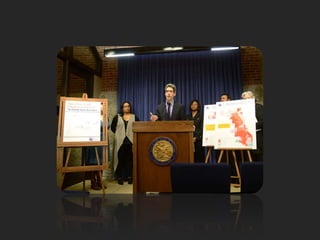
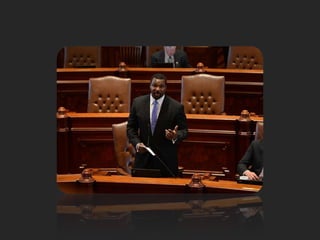

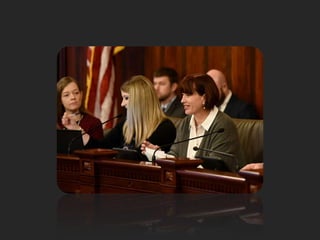
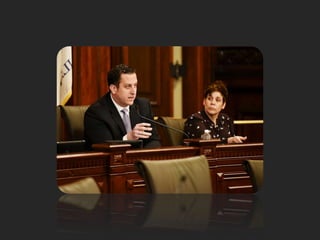
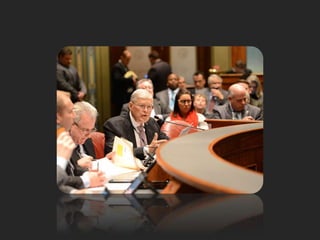
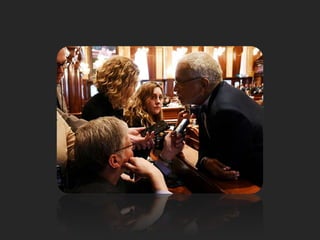
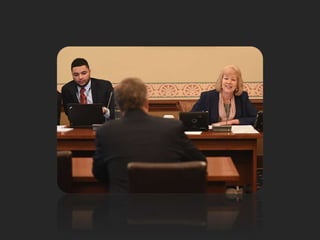
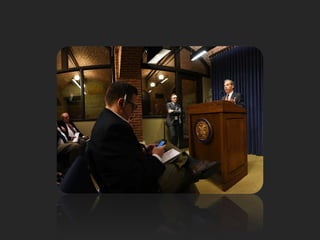

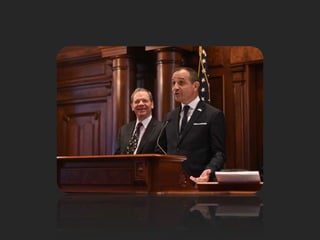
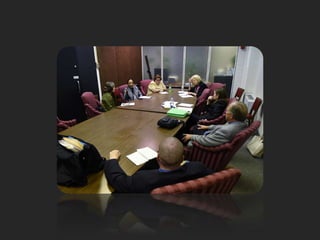
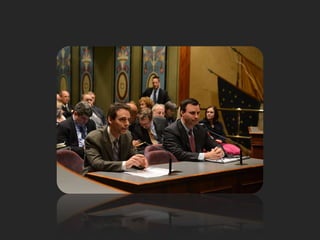
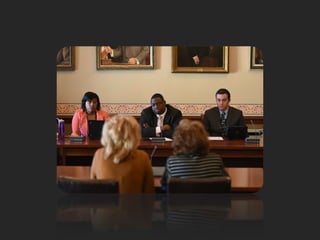

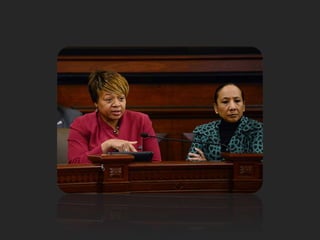
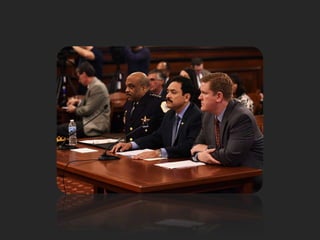
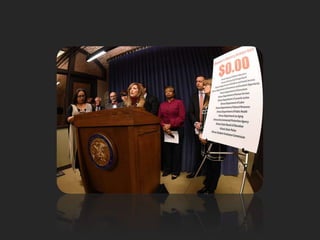
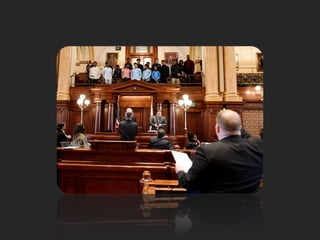
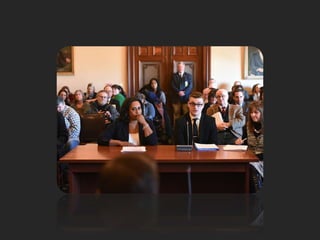
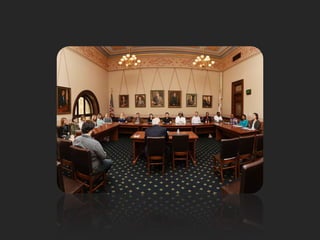
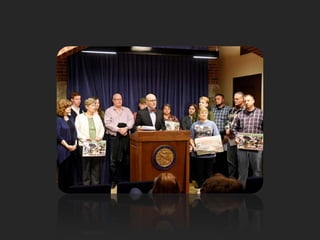

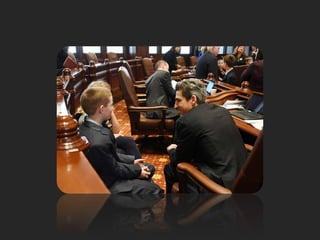
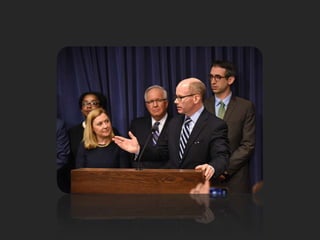
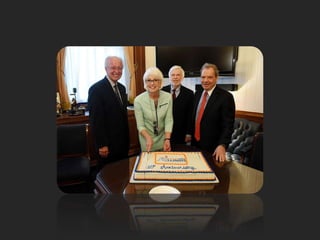
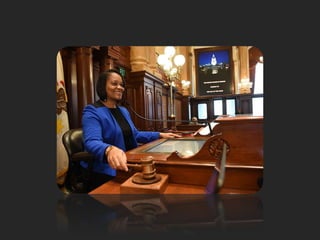


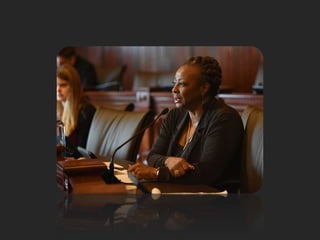
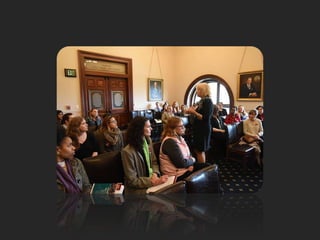

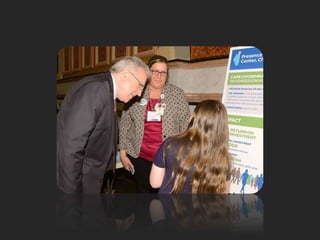
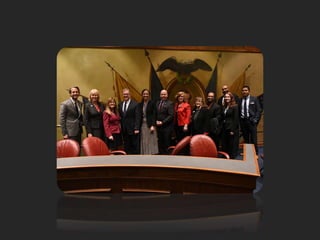
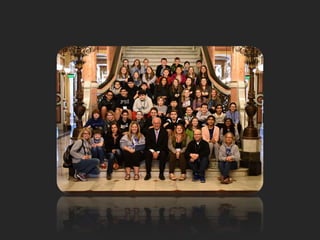

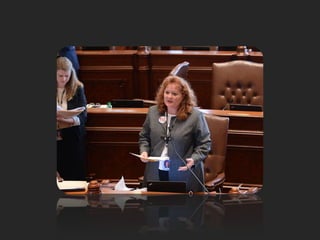
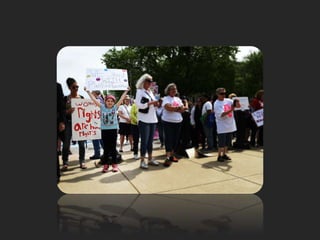

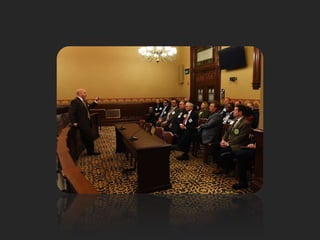
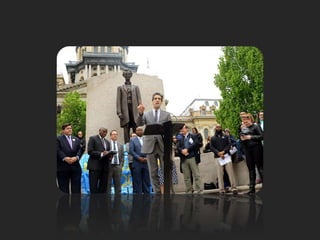


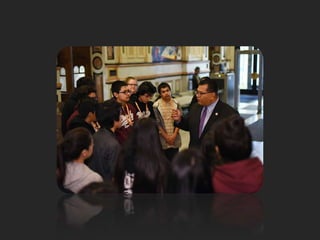
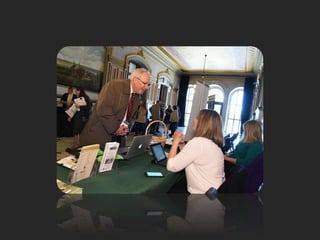
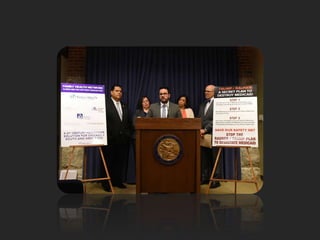
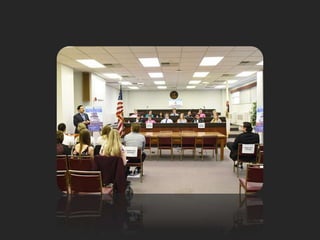
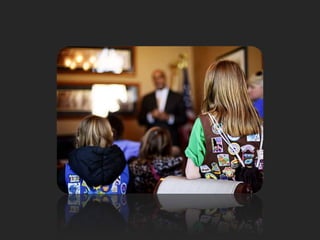
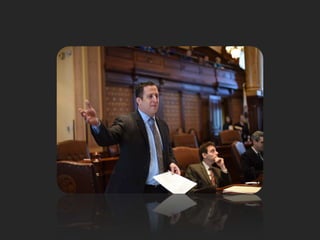
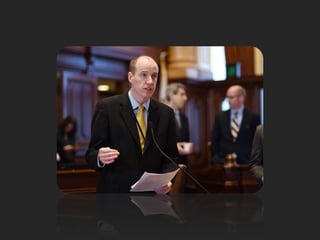
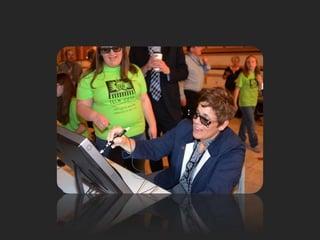

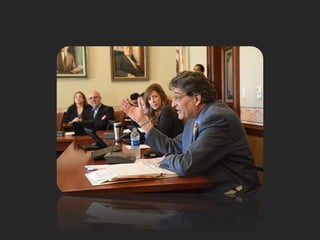
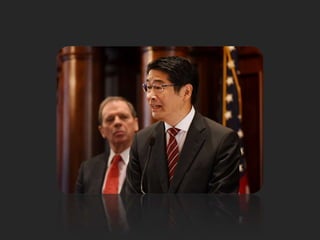
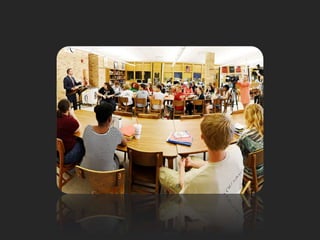
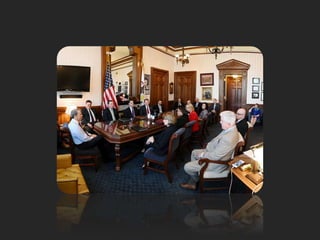
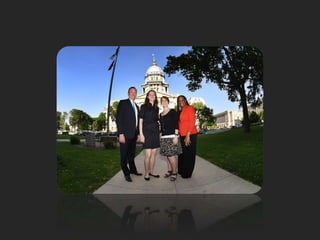
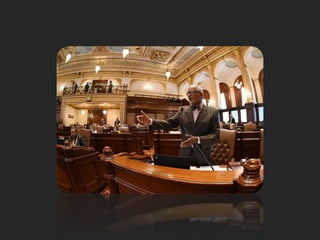
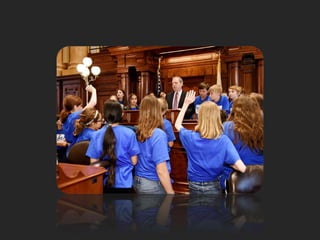


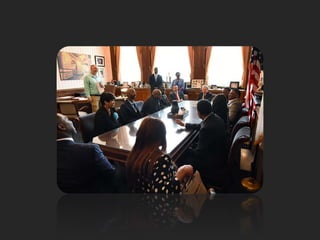
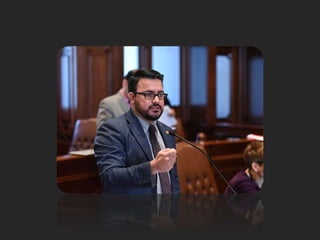
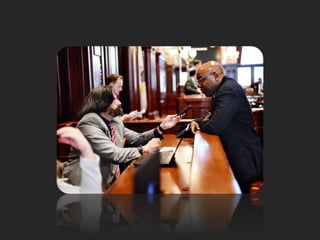
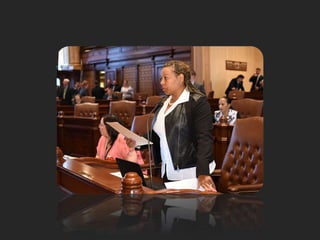
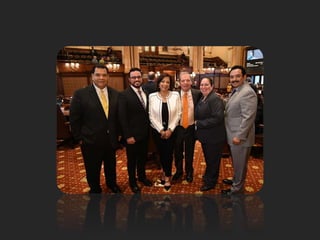
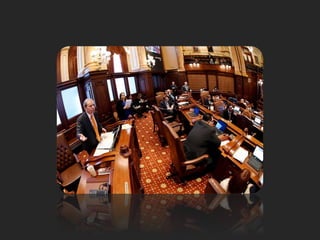
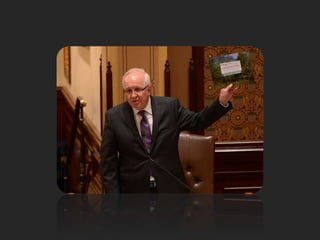
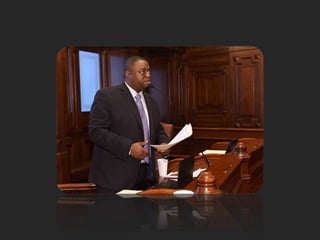
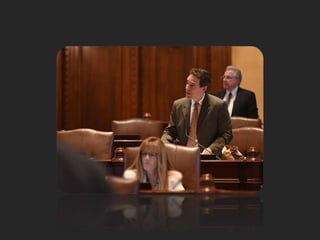
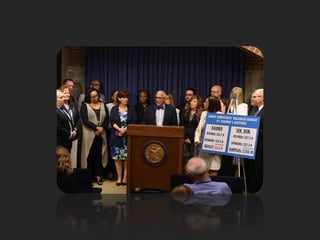
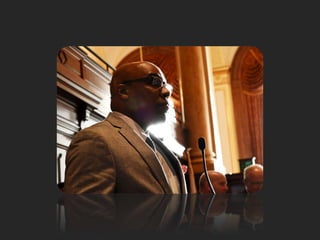
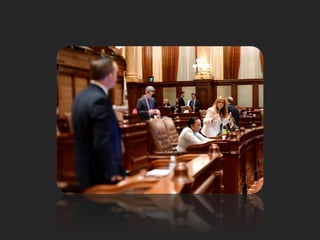
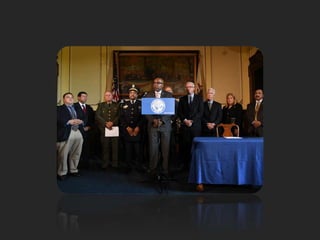
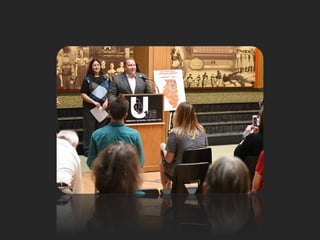


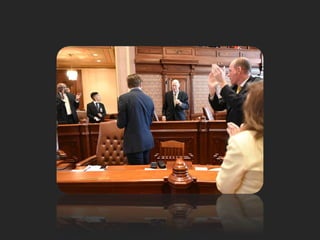



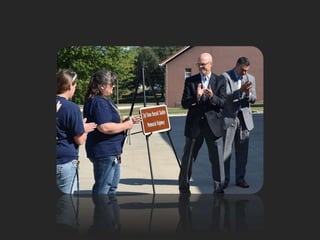

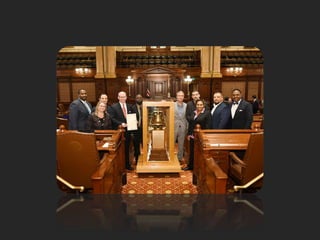


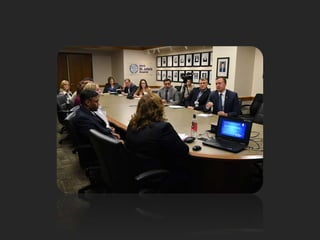


Ad
Recommended
New Illinois Laws - July 2019
New Illinois Laws - July 2019Illinois State Senate Democratic Caucus
Ã˝
This document summarizes some new laws passed by the Illinois legislature that will impact residents. It discusses laws around cell phone use while driving, raising the tobacco purchasing age to 21, requiring a minimum of five hours of daily instruction in schools, and allowing mayors to preside over marriage ceremonies. The document encourages visiting a website to stay updated on these and other new laws.New Illinois Laws to Know for 2019
New Illinois Laws to Know for 2019Illinois State Senate Democratic Caucus
Ã˝
This document lists 10 new laws taking effect in Illinois on January 1, 2019. Some of the key laws include requiring toddlers under age 2 to be in rear-facing car seats for safety; mandating active shooter safety drills be conducted in schools each year; and allowing police to temporarily take custody of pets exposed to dangerous weather conditions. The document provides a brief description of each new law.34 Things You Need to Know About the New Tax Law (AARP)
34 Things You Need to Know About the New Tax Law (AARP)Illinois State Senate Democratic Caucus
Ã˝
The document provides 30 key points summarizing changes to the new US tax law. Some major changes include doubling the standard deduction, increasing the child tax credit, capping the state and local tax deduction at $10,000, lowering the corporate tax rate to 21%, and eliminating some itemized deductions for moving expenses, tax preparation, and alimony payments. The new law also expands tax breaks for education expenses and increases exemption amounts for the alternative minimum tax and estate tax.Top New Illinois Laws Affecting Veterans in 2018
Top New Illinois Laws Affecting Veterans in 2018Illinois State Senate Democratic Caucus
Ã˝
In 2018, Illinois implemented several new laws benefiting veterans, including mandatory cancer screenings and updates to death certificates reflecting military service. Additional laws allow military members to terminate contracts during deployment, replace specialty license plates without fees, and receive education credits for their service. Notably, the VA is now required to provide information on acquiring service animals for returning veterans.Top New Illinois Laws Affecting Animals in 2018
Top New Illinois Laws Affecting Animals in 2018Illinois State Senate Democratic Caucus
Ã˝
In 2018, Illinois introduced several new laws aimed at protecting animals, reflecting its strong animal rights stance. Key legislation includes bans on African and Asian elephants in circuses, the establishment of service dog training programs for veterans, and provisions for injured police dogs to access veterinary care. Other notable laws address pet custody in divorces, support for feral cat management, and adoption efforts for animals used in research.The Illinois Senate Democratic Caucus' Top 10 New Laws for 2018
The Illinois Senate Democratic Caucus' Top 10 New Laws for 2018Illinois State Senate Democratic Caucus
Ã˝
New laws taking effect in Illinois in 2018 include allowing 16- and 17-year-olds to sign up as organ donors, preventing businesses from removing pricing stickers before a vehicle sale, and prohibiting the use of African and Asian elephants in circuses. Other laws protect domestic violence victims' cell phone rights, require preschools to provide services instead of expulsion, and allow customers to freely post business reviews online. Over 200 new laws were passed to update policies and reflect the state's changing needs.Oak Park Town Hall - June 19, 2017
Oak Park Town Hall - June 19, 2017Illinois State Senate Democratic Caucus
Ã˝
The Oak Park Town Hall discussed the state budget and recent legislative progress. The state budget funds education, human services, and cuts spending and pensions to save money. Recent laws passed automatic voter registration, protected abortion access, limited cooperation with immigration enforcement, expanded sealing of criminal records, and reformed school funding. The tax increase went to paying pensions and bills, and Illinois' tax rate remains competitive. Pension debt grew as contributions lagged for decades. Officials provided contact information to discuss issues.Senate President talks about real problems to solving state’s budget woes
Senate President talks about real problems to solving state’s budget woesIllinois State Senate Democratic Caucus
Ã˝
The document summarizes Illinois' FY17 budget and revenues. It states that revenues were $31.4 billion but spending was $34.4 billion, resulting in a $3 billion deficit. Additional spending pressures of $4.3 billion further increased the deficit to $7.3 billion. The unpaid bill backlog was estimated to grow from $11 billion in 2016 to $47 billion by 2022 if not addressed.FY17 Budget and Revenue Overview
FY17 Budget and Revenue OverviewIllinois State Senate Democratic Caucus
Ã˝
The document presents the FY17 budget overview for Drury Lane Theater and Conference Center, detailing total revenues of $31.4 billion against spending of $34.4 billion, resulting in a deficit of $3 billion. It also highlights significant spending pressures leading to a projected deficit of $7.3 billion by the end of FY17, alongside an increasing unpaid bill backlog estimated to reach $24 billion by 2022. Key legislative proposals related to education funding, minimum wage, and pension reform are mentioned as part of the budget discussion.Illinois Senate Democratic Caucus Top Ten New Laws for 2017
Illinois Senate Democratic Caucus Top Ten New Laws for 2017Illinois State Senate Democratic Caucus
Ã˝
The document outlines the top ten new laws taking effect in Illinois on January 1, 2017, covering various areas such as women's health, police dog retirement, domestic violence prevention, and worker protections. Key highlights include eliminating the 'tampon tax,' ensuring coverage for contraceptives, and improving sick time flexibility for employees. Additional topics mentioned are lead toxicity regulations and cash bail acceptance by law enforcement.Top new education laws for Illinois in 2016
Top new education laws for Illinois in 2016Illinois State Senate Democratic Caucus
Ã˝
Several new laws were passed in Illinois in 2016 to reform education. Key areas addressed included reforming the school funding formula, awarding college credit for bilingual students through the State Seal of Biliteracy program, requiring charter schools to comply with attendance laws, expanding school breakfast programs, funding agriculture education teachers, allowing safety cameras on school buses, and addressing racial disparities in school discipline policies. Summaries of all new education laws in Illinois are available on the state legislature's website.Overview of Education Local, State and Federal Funding - ISBE
Overview of Education Local, State and Federal Funding - ISBEIllinois State Senate Democratic Caucus
Ã˝
The document provides an overview of the funding sources for Illinois school districts, detailing contributions from local, state, and federal levels. It discusses specific revenue sources like property taxes, state aid distribution methods, and federal programs that support low-income students and special education. Additionally, it highlights the financial disparities in funding across different districts and the state’s efforts to ensure equitable support for schools based on local wealth.Illinois School Funding Reform - Education Commission of the States
Illinois School Funding Reform - Education Commission of the StatesIllinois State Senate Democratic Caucus
Ã˝
The document discusses components and characteristics of high-quality school funding systems, emphasizing adequacy, equity, flexibility, and adaptability. It examines how different states fund education and the challenges faced in transitioning to new funding formulas, including concerns over potential funding loss and public confusion. The presentation outlines a step-by-step process for developing and implementing new funding formulas with public input.Illinois School Funding Reform Commission
Illinois School Funding Reform CommissionIllinois State Senate Democratic Caucus
Ã˝
This document provides an agenda and background information for the Illinois School Funding Reform Commission meeting. The agenda includes welcoming remarks, a discussion of national best practices in school funding, an overview of Illinois' current funding systems, establishing guiding principles, and wrapping up. A history of funding reform efforts in Illinois since 1970 is also summarized. Key statistics about Illinois' current funding show it ranks high in per-pupil spending but low in state funding contribution compared to other states. Suggestions are made for small group meetings to further study the current funding formula and proposals to change it. Contact information is provided for the Commission chair and staffer.I Like Illinois Tourism
I Like Illinois TourismIllinois State Senate Democratic Caucus
Ã˝
The document lists and provides brief descriptions of 10 top places to visit in Illinois, including historic sites related to Abraham Lincoln in Springfield, the Willis Tower in Chicago, Starved Rock State Park, the Field Museum in Chicago, and Wrigley Field also in Chicago. It encourages exploring the diverse historic, cultural and natural attractions found throughout the Land of Lincoln.Education Funding Inequities in Illinois by Advance Illinois
Education Funding Inequities in Illinois by Advance IllinoisIllinois State Senate Democratic Caucus
Ã˝
The document summarizes issues with inequities in education funding in Illinois. It finds that Illinois has some of the largest income-based achievement gaps in the country, with low-income students less likely to read or do math at grade level. It also has large race-based achievement gaps. However, high-poverty districts spend less per student than low-poverty districts. The document calls for fixing Illinois' broken school funding system by implementing a weighted funding formula that directs more resources to districts based on student needs.Funding Education in Illinois by State Sen. Andy Manar
Funding Education in Illinois by State Sen. Andy ManarIllinois State Senate Democratic Caucus
Ã˝
The document summarizes funding for education in Illinois. It notes that Illinois relies more heavily on local property taxes than other states, with local sources accounting for over 60% of district revenues on average compared to just 25% nationally. It also discusses inequities in the system, with wide variations in per-pupil spending between districts and less funding going to districts serving low-income students and students of color. The document concludes that Illinois has some of the largest funding gaps in the country and that an equitable and adequate funding system that prioritizes education is needed to improve outcomes for all students.Top 5 New State Laws for Animal Welfare
Top 5 New State Laws for Animal WelfareIllinois State Senate Democratic Caucus
Ã˝
Several new laws in Illinois are aimed at strengthening protections for pets and animals. Owners will face charges if they leave pets outside in extreme heat or cold. Animals will be impounded if their owners are arrested for cruelty. Penalties are increased if abusing an animal occurs in front of children. Shelters must now scan lost pets for microchips within 24 hours to help reunite pets with owners. Certain abuse victims can have a service dog with them for comfort while testifying in court.Top 5 New State Laws on Social & Criminal Justice Reform
Top 5 New State Laws on Social & Criminal Justice ReformIllinois State Senate Democratic Caucus
Ã˝
New laws in Illinois focusing on criminal justice reform include measures for juvenile sentencing and police accountability. Key reforms include prohibiting the commitment of minors for misdemeanors, regulating police body camera use, and preventing detention of minors under 13 without contacting youth services. Additional changes eliminate automatic transfers of juvenile cases to adult courts, allowing for more discretion based on individual circumstances.16 for 16: New laws for a New Year
16 for 16: New laws for a New YearIllinois State Senate Democratic Caucus
Ã˝
Starting January 1, Illinois will implement numerous new laws, including enhanced protections for pets, the establishment of a silver alert system for missing adults with cognitive impairments, and the prohibition of powdered alcohol sales. Additionally, new regulations will govern police body camera usage and require schools to equip carbon monoxide detectors. Other laws will support undocumented residents in obtaining law licenses, ban gay conversion therapy for minors, and ensure that travel accommodations for nursing mothers are available in major airports.New Illinois laws now in effect
New Illinois laws now in effectIllinois State Senate Democratic Caucus
Ã˝
Several new laws took effect over the summer covering topics like vaccines, veterans' discounts, sexual assault policies, smoking bans, adoptions, AP credits, hunting, suicide prevention, crime victims' rights, and naming sweet corn the state vegetable. Restaurants can now offer happy hour deals on food and drinks again. Schools will pilot e-learning programs and 3D mammograms are now required to be covered by insurers.Labor Day 2015
Labor Day 2015Illinois State Senate Democratic Caucus
Ã˝
Labor Day is being celebrated to recognize Illinois' working men and women. The document wishes everyone a happy Labor Day in 2015 and thanks all those who work in the state. It keeps the message short and focused on honoring workers on this holiday.Senator Harmon Budget Presentation - Short version
Senator Harmon Budget Presentation - Short versionIllinois State Senate Democratic Caucus
Ã˝
The document summarizes a town hall meeting held by State Senator Don Harmon and Representative Camille Lilly on June 9th. It discusses the state budget timeline and process, Governor Rauner's proposed budget cuts to areas like local governments, public transit, universities, and human services. It also outlines the budget gap due to cuts requiring legal changes, and compares funding levels under the current budget, Governor's proposal, and Democratic proposal. The document urges investing in areas like education, human services, and a higher minimum wage to help the middle class. Contact information is provided at the end.Top 5 things to know about
Top 5 things to know about Illinois State Senate Democratic Caucus
Ã˝
The Child Care Assistance Program (CCAP) in Illinois provides financial assistance to low-income working families to pay for child care so parents can work or attend college. CCAP serves over 170,000 children through over 13,000 licensed child care providers in the state. Without this assistance, many parents would have to quit their jobs or education and child care providers would have to lay off staff or close down. CCAP also provides resources to help parents find quality child care and support for providers to improve their services.Senator Harmon Budget Presentation
Senator Harmon Budget PresentationIllinois State Senate Democratic Caucus
Ã˝
This document summarizes Senator Don Harmon's presentation to the Business and Civic Council of Oak Park on June 26, 2015. It discusses the state of Illinois' budget process and challenges, including Governor Rauner's proposed budget cuts and the resulting impacts. It also outlines Democratic proposals for alternative budget and reforms, including investing in education, human services, and a middle class agenda. Potential areas of compromise are identified. Background on pension reforms and Illinois' economic strengths are also provided.Sen. Harris Minority Business Legislation
Sen. Harris Minority Business Legislation Illinois State Senate Democratic Caucus
Ã˝
This document summarizes several bills introduced by Senator Napoleon Harris related to minority business legislation. It outlines bills that require reporting on disadvantaged business procurement goals from universities and health care facilities, provide tax credits for hiring unemployed workers, and aim to increase participation of minority-owned businesses in state contracts, professional services contracts, and the insurance industry. The bills have various statuses from being introduced to awaiting committee assignment or the governor's signature. The overall purpose is to improve transparency, address lack of minority participation, and increase opportunities for minority-owned businesses.Top 5 things to know about low-income home energy assistance
Top 5 things to know about low-income home energy assistanceIllinois State Senate Democratic Caucus
Ã˝
The Low Income Home Energy Assistance Program (LIHEAP) supports over 300,000 vulnerable Illinois households, including seniors and low-income families, with energy costs. Governor Bruce Rauner is proposing to eliminate this federally funded program on July 1, which could jeopardize the health and safety of those reliant on it. Past surveys indicate that many recipients face significant financial strain, spending a larger percentage of their income on energy compared to the average family.Top5things ccp
Top5things ccpIllinois State Senate Democratic Caucus
Ã˝
The Illinois Community Care Program provides in-home services to over 100,000 senior citizens, allowing them to live independently and avoid more expensive nursing home care. Services include home health aides, adult day care, and emergency response devices. On average, it costs $868 per month per senior to provide these in-home services, compared to $2,791 per month for nursing home care through Medicaid. However, Governor Rauner now plans to exclude almost 40% of current clients from the program by increasing eligibility requirements, which could force many seniors into nursing homes.POLITICAL AND RELIGIOUS ASPECTS OF POWER IN INDIA
POLITICAL AND RELIGIOUS ASPECTS OF POWER IN INDIAAnushka Singh
Ã˝
DESCRIBES INTERSECTION OF THE POLITICAL AND RELIGIOUS ASPECTS OF POWER IN INDIAOneworld Energy USA LLC Fraud CEO Mike Minor.pptx
Oneworld Energy USA LLC Fraud CEO Mike Minor.pptxnathaniel leonard
Ã˝
Oneworld Energy USA LLC CEO Accused in Multi-Jurisdictional Fraud: A Closer Look at Mike MinorMore Related Content
More from Illinois State Senate Democratic Caucus (20)
FY17 Budget and Revenue Overview
FY17 Budget and Revenue OverviewIllinois State Senate Democratic Caucus
Ã˝
The document presents the FY17 budget overview for Drury Lane Theater and Conference Center, detailing total revenues of $31.4 billion against spending of $34.4 billion, resulting in a deficit of $3 billion. It also highlights significant spending pressures leading to a projected deficit of $7.3 billion by the end of FY17, alongside an increasing unpaid bill backlog estimated to reach $24 billion by 2022. Key legislative proposals related to education funding, minimum wage, and pension reform are mentioned as part of the budget discussion.Illinois Senate Democratic Caucus Top Ten New Laws for 2017
Illinois Senate Democratic Caucus Top Ten New Laws for 2017Illinois State Senate Democratic Caucus
Ã˝
The document outlines the top ten new laws taking effect in Illinois on January 1, 2017, covering various areas such as women's health, police dog retirement, domestic violence prevention, and worker protections. Key highlights include eliminating the 'tampon tax,' ensuring coverage for contraceptives, and improving sick time flexibility for employees. Additional topics mentioned are lead toxicity regulations and cash bail acceptance by law enforcement.Top new education laws for Illinois in 2016
Top new education laws for Illinois in 2016Illinois State Senate Democratic Caucus
Ã˝
Several new laws were passed in Illinois in 2016 to reform education. Key areas addressed included reforming the school funding formula, awarding college credit for bilingual students through the State Seal of Biliteracy program, requiring charter schools to comply with attendance laws, expanding school breakfast programs, funding agriculture education teachers, allowing safety cameras on school buses, and addressing racial disparities in school discipline policies. Summaries of all new education laws in Illinois are available on the state legislature's website.Overview of Education Local, State and Federal Funding - ISBE
Overview of Education Local, State and Federal Funding - ISBEIllinois State Senate Democratic Caucus
Ã˝
The document provides an overview of the funding sources for Illinois school districts, detailing contributions from local, state, and federal levels. It discusses specific revenue sources like property taxes, state aid distribution methods, and federal programs that support low-income students and special education. Additionally, it highlights the financial disparities in funding across different districts and the state’s efforts to ensure equitable support for schools based on local wealth.Illinois School Funding Reform - Education Commission of the States
Illinois School Funding Reform - Education Commission of the StatesIllinois State Senate Democratic Caucus
Ã˝
The document discusses components and characteristics of high-quality school funding systems, emphasizing adequacy, equity, flexibility, and adaptability. It examines how different states fund education and the challenges faced in transitioning to new funding formulas, including concerns over potential funding loss and public confusion. The presentation outlines a step-by-step process for developing and implementing new funding formulas with public input.Illinois School Funding Reform Commission
Illinois School Funding Reform CommissionIllinois State Senate Democratic Caucus
Ã˝
This document provides an agenda and background information for the Illinois School Funding Reform Commission meeting. The agenda includes welcoming remarks, a discussion of national best practices in school funding, an overview of Illinois' current funding systems, establishing guiding principles, and wrapping up. A history of funding reform efforts in Illinois since 1970 is also summarized. Key statistics about Illinois' current funding show it ranks high in per-pupil spending but low in state funding contribution compared to other states. Suggestions are made for small group meetings to further study the current funding formula and proposals to change it. Contact information is provided for the Commission chair and staffer.I Like Illinois Tourism
I Like Illinois TourismIllinois State Senate Democratic Caucus
Ã˝
The document lists and provides brief descriptions of 10 top places to visit in Illinois, including historic sites related to Abraham Lincoln in Springfield, the Willis Tower in Chicago, Starved Rock State Park, the Field Museum in Chicago, and Wrigley Field also in Chicago. It encourages exploring the diverse historic, cultural and natural attractions found throughout the Land of Lincoln.Education Funding Inequities in Illinois by Advance Illinois
Education Funding Inequities in Illinois by Advance IllinoisIllinois State Senate Democratic Caucus
Ã˝
The document summarizes issues with inequities in education funding in Illinois. It finds that Illinois has some of the largest income-based achievement gaps in the country, with low-income students less likely to read or do math at grade level. It also has large race-based achievement gaps. However, high-poverty districts spend less per student than low-poverty districts. The document calls for fixing Illinois' broken school funding system by implementing a weighted funding formula that directs more resources to districts based on student needs.Funding Education in Illinois by State Sen. Andy Manar
Funding Education in Illinois by State Sen. Andy ManarIllinois State Senate Democratic Caucus
Ã˝
The document summarizes funding for education in Illinois. It notes that Illinois relies more heavily on local property taxes than other states, with local sources accounting for over 60% of district revenues on average compared to just 25% nationally. It also discusses inequities in the system, with wide variations in per-pupil spending between districts and less funding going to districts serving low-income students and students of color. The document concludes that Illinois has some of the largest funding gaps in the country and that an equitable and adequate funding system that prioritizes education is needed to improve outcomes for all students.Top 5 New State Laws for Animal Welfare
Top 5 New State Laws for Animal WelfareIllinois State Senate Democratic Caucus
Ã˝
Several new laws in Illinois are aimed at strengthening protections for pets and animals. Owners will face charges if they leave pets outside in extreme heat or cold. Animals will be impounded if their owners are arrested for cruelty. Penalties are increased if abusing an animal occurs in front of children. Shelters must now scan lost pets for microchips within 24 hours to help reunite pets with owners. Certain abuse victims can have a service dog with them for comfort while testifying in court.Top 5 New State Laws on Social & Criminal Justice Reform
Top 5 New State Laws on Social & Criminal Justice ReformIllinois State Senate Democratic Caucus
Ã˝
New laws in Illinois focusing on criminal justice reform include measures for juvenile sentencing and police accountability. Key reforms include prohibiting the commitment of minors for misdemeanors, regulating police body camera use, and preventing detention of minors under 13 without contacting youth services. Additional changes eliminate automatic transfers of juvenile cases to adult courts, allowing for more discretion based on individual circumstances.16 for 16: New laws for a New Year
16 for 16: New laws for a New YearIllinois State Senate Democratic Caucus
Ã˝
Starting January 1, Illinois will implement numerous new laws, including enhanced protections for pets, the establishment of a silver alert system for missing adults with cognitive impairments, and the prohibition of powdered alcohol sales. Additionally, new regulations will govern police body camera usage and require schools to equip carbon monoxide detectors. Other laws will support undocumented residents in obtaining law licenses, ban gay conversion therapy for minors, and ensure that travel accommodations for nursing mothers are available in major airports.New Illinois laws now in effect
New Illinois laws now in effectIllinois State Senate Democratic Caucus
Ã˝
Several new laws took effect over the summer covering topics like vaccines, veterans' discounts, sexual assault policies, smoking bans, adoptions, AP credits, hunting, suicide prevention, crime victims' rights, and naming sweet corn the state vegetable. Restaurants can now offer happy hour deals on food and drinks again. Schools will pilot e-learning programs and 3D mammograms are now required to be covered by insurers.Labor Day 2015
Labor Day 2015Illinois State Senate Democratic Caucus
Ã˝
Labor Day is being celebrated to recognize Illinois' working men and women. The document wishes everyone a happy Labor Day in 2015 and thanks all those who work in the state. It keeps the message short and focused on honoring workers on this holiday.Senator Harmon Budget Presentation - Short version
Senator Harmon Budget Presentation - Short versionIllinois State Senate Democratic Caucus
Ã˝
The document summarizes a town hall meeting held by State Senator Don Harmon and Representative Camille Lilly on June 9th. It discusses the state budget timeline and process, Governor Rauner's proposed budget cuts to areas like local governments, public transit, universities, and human services. It also outlines the budget gap due to cuts requiring legal changes, and compares funding levels under the current budget, Governor's proposal, and Democratic proposal. The document urges investing in areas like education, human services, and a higher minimum wage to help the middle class. Contact information is provided at the end.Top 5 things to know about
Top 5 things to know about Illinois State Senate Democratic Caucus
Ã˝
The Child Care Assistance Program (CCAP) in Illinois provides financial assistance to low-income working families to pay for child care so parents can work or attend college. CCAP serves over 170,000 children through over 13,000 licensed child care providers in the state. Without this assistance, many parents would have to quit their jobs or education and child care providers would have to lay off staff or close down. CCAP also provides resources to help parents find quality child care and support for providers to improve their services.Senator Harmon Budget Presentation
Senator Harmon Budget PresentationIllinois State Senate Democratic Caucus
Ã˝
This document summarizes Senator Don Harmon's presentation to the Business and Civic Council of Oak Park on June 26, 2015. It discusses the state of Illinois' budget process and challenges, including Governor Rauner's proposed budget cuts and the resulting impacts. It also outlines Democratic proposals for alternative budget and reforms, including investing in education, human services, and a middle class agenda. Potential areas of compromise are identified. Background on pension reforms and Illinois' economic strengths are also provided.Sen. Harris Minority Business Legislation
Sen. Harris Minority Business Legislation Illinois State Senate Democratic Caucus
Ã˝
This document summarizes several bills introduced by Senator Napoleon Harris related to minority business legislation. It outlines bills that require reporting on disadvantaged business procurement goals from universities and health care facilities, provide tax credits for hiring unemployed workers, and aim to increase participation of minority-owned businesses in state contracts, professional services contracts, and the insurance industry. The bills have various statuses from being introduced to awaiting committee assignment or the governor's signature. The overall purpose is to improve transparency, address lack of minority participation, and increase opportunities for minority-owned businesses.Top 5 things to know about low-income home energy assistance
Top 5 things to know about low-income home energy assistanceIllinois State Senate Democratic Caucus
Ã˝
The Low Income Home Energy Assistance Program (LIHEAP) supports over 300,000 vulnerable Illinois households, including seniors and low-income families, with energy costs. Governor Bruce Rauner is proposing to eliminate this federally funded program on July 1, which could jeopardize the health and safety of those reliant on it. Past surveys indicate that many recipients face significant financial strain, spending a larger percentage of their income on energy compared to the average family.Top5things ccp
Top5things ccpIllinois State Senate Democratic Caucus
Ã˝
The Illinois Community Care Program provides in-home services to over 100,000 senior citizens, allowing them to live independently and avoid more expensive nursing home care. Services include home health aides, adult day care, and emergency response devices. On average, it costs $868 per month per senior to provide these in-home services, compared to $2,791 per month for nursing home care through Medicaid. However, Governor Rauner now plans to exclude almost 40% of current clients from the program by increasing eligibility requirements, which could force many seniors into nursing homes.Illinois Senate Democratic Caucus Top Ten New Laws for 2017
Illinois Senate Democratic Caucus Top Ten New Laws for 2017Illinois State Senate Democratic Caucus
Ã˝
Overview of Education Local, State and Federal Funding - ISBE
Overview of Education Local, State and Federal Funding - ISBEIllinois State Senate Democratic Caucus
Ã˝
Illinois School Funding Reform - Education Commission of the States
Illinois School Funding Reform - Education Commission of the StatesIllinois State Senate Democratic Caucus
Ã˝
Education Funding Inequities in Illinois by Advance Illinois
Education Funding Inequities in Illinois by Advance IllinoisIllinois State Senate Democratic Caucus
Ã˝
Top 5 things to know about low-income home energy assistance
Top 5 things to know about low-income home energy assistanceIllinois State Senate Democratic Caucus
Ã˝
Recently uploaded (12)
POLITICAL AND RELIGIOUS ASPECTS OF POWER IN INDIA
POLITICAL AND RELIGIOUS ASPECTS OF POWER IN INDIAAnushka Singh
Ã˝
DESCRIBES INTERSECTION OF THE POLITICAL AND RELIGIOUS ASPECTS OF POWER IN INDIAOneworld Energy USA LLC Fraud CEO Mike Minor.pptx
Oneworld Energy USA LLC Fraud CEO Mike Minor.pptxnathaniel leonard
Ã˝
Oneworld Energy USA LLC CEO Accused in Multi-Jurisdictional Fraud: A Closer Look at Mike MinorAir India Plane Crash: Tragedy Strikes Near Ahmedabad
Air India Plane Crash: Tragedy Strikes Near AhmedabadNew India Abroad
Ã˝
The Air India Plane Crash on June 12, 2025, shocked the nation and the global Indian community. A Boeing 787-8 Dreamliner, carrying 242 passengers and crew, crashed shortly after taking off from Ahmedabad Airport, on route to London. The aircraft struck a hostel near B.J. Medical College, causing fatalities both onboard and on the ground. Investigations are ongoing, focusing on possible engine failure. One Indian-origin British passenger survived. Families worldwide are mourning this tragic Air India Plane Crash, and New India Abroad continues to provide in-depth coverage on the disaster and its far-reaching impact.ŒüŒπ œáœéœÅŒµœÇ œÑŒ∑œÇ ŒïœÖœÅœéœÄŒ∑œÇ ŒºŒµ œÑŒ∑ŒΩ Œ∫Œ±ŒªœçœÑŒµœÅŒ∑ œÄŒøŒπœåœÑŒ∑œÑŒ± œÖŒ¥Œ¨œÑœâŒΩ Œ≥ŒπŒ± Œ∫ŒøŒªœçŒºŒ≤Œ∑œÉŒ∑ ‚Äì Œó Œ∏Œ≠œÉŒ∑Ã˝œÑ...
ŒüŒπ œáœéœÅŒµœÇ œÑŒ∑œÇ ŒïœÖœÅœéœÄŒ∑œÇ ŒºŒµ œÑŒ∑ŒΩ Œ∫Œ±ŒªœçœÑŒµœÅŒ∑ œÄŒøŒπœåœÑŒ∑œÑŒ± œÖŒ¥Œ¨œÑœâŒΩ Œ≥ŒπŒ± Œ∫ŒøŒªœçŒºŒ≤Œ∑œÉŒ∑ ‚Äì Œó Œ∏Œ≠œÉŒ∑Ã˝œÑ...Newsroom8
Ã˝
¬´ŒïŒæŒ±ŒπœÅŒµœÑŒπŒ∫ŒÆœÇ œÄŒøŒπœåœÑŒ∑œÑŒ±œÇ¬ª œÑŒø 97% œÑœâŒΩ œÖŒ¥Œ¨œÑœâŒΩ Œ∫ŒøŒªœçŒºŒ≤Œ∑œÉŒ∑œÇ œÉœÑŒ∑ŒΩ ŒïŒªŒªŒ¨Œ¥Œ±. Œ§Œπ Œ±ŒΩŒ±œÜŒ≠œÅŒµŒπ Œ≠Œ∫Œ∏ŒµœÉŒ∑ Œ≥ŒπŒ± œÑŒ∑ŒΩ ŒïœÖœÅœéœÄŒ∑ Œ∫Œ±Œπ œÑŒ± œÉœÑŒøŒπœáŒµŒØŒ± Œ≥ŒπŒ±Ã˝œÑŒ∑Ã˝œáœéœÅŒ±Ã˝ŒºŒ±œÇ.Gatwick AG About A Company Shut Down by UK Courts Still Sells Offshore Servic...
Gatwick AG About A Company Shut Down by UK Courts Still Sells Offshore Servic...nathaniel leonard
Ã˝
Gatwick AG was dissolved by British authorities in 2023. Its website remains active. And former clients say they’ve been misled and defrauded.
Pathos Communications When Reputation Management Becomes Reputation Destructi...
Pathos Communications When Reputation Management Becomes Reputation Destructi...nathaniel leonard
Ã˝
A recent letter from UK-based firm Pathos Communications: When Reputation Management Becomes Reputation DestructionIndian Community Centers – New India Abroad
Indian Community Centers – New India AbroadNew India Abroad
Ã˝
New India Abroad highlights the vital role of Indian community centers in uniting the global Indian diaspora. These centers offer cultural programs, language classes, legal support, and social events, helping immigrants stay connected to their roots while integrating abroad. Found in cities like New York, London, and Toronto, Indian community centers foster belonging and cultural pride. New India Abroad proudly showcases their impact, promoting unity, tradition, and support across Indian communities worldwide.
EDSA Revolution and Democracy - the Youth and Students in Focus [uploadable]....
EDSA Revolution and Democracy - the Youth and Students in Focus [uploadable]....ssuser0e98111
Ã˝
This presentation talks about the EDSA Revolution and Democracy in general and its context with the youth.PRESS-RELEASE-WIFE-3.pdfKen Ofori-Atta undergoes successful prostate cancer s...
PRESS-RELEASE-WIFE-3.pdfKen Ofori-Atta undergoes successful prostate cancer s...businessweekghana
Ã˝
Ken Ofori-Atta undergoes successful prostate cancer surgery – Wife disclosesVijay Rupani Biography: Early Life, Education, and Political Career
Vijay Rupani Biography: Early Life, Education, and Political CareerVoterMood
Ã˝
Explore the biography of Vijay Rupani—his early life, academic background, and rise in Indian politics through the ranks of the BJP.Connecting the Indian Community Abroad – New India Abroad
Connecting the Indian Community Abroad – New India AbroadNew India Abroad
Ã˝
New India Abroad is dedicated to strengthening the global Indian community by sharing inspiring stories, news, and achievements of Indians living overseas. We highlight their contributions across business, culture, science, and public service. Whether it's entrepreneurship in the U.S. or academic success in Europe, New India Abroad brings their journeys to light. Our mission is to foster unity, pride, and a shared identity among the vibrant Indian community abroad, helping them stay informed and connected.Abdulwahed Abdulazeez- the legacy of a kind leader
Abdulwahed Abdulazeez- the legacy of a kind leadersameerlicht19
Ã˝
Some key moments captured during the tenure of Abdulwahed Abdulazeez as the 44th Executive President of ASSON ABU ZariaŒüŒπ œáœéœÅŒµœÇ œÑŒ∑œÇ ŒïœÖœÅœéœÄŒ∑œÇ ŒºŒµ œÑŒ∑ŒΩ Œ∫Œ±ŒªœçœÑŒµœÅŒ∑ œÄŒøŒπœåœÑŒ∑œÑŒ± œÖŒ¥Œ¨œÑœâŒΩ Œ≥ŒπŒ± Œ∫ŒøŒªœçŒºŒ≤Œ∑œÉŒ∑ ‚Äì Œó Œ∏Œ≠œÉŒ∑Ã˝œÑ...
ŒüŒπ œáœéœÅŒµœÇ œÑŒ∑œÇ ŒïœÖœÅœéœÄŒ∑œÇ ŒºŒµ œÑŒ∑ŒΩ Œ∫Œ±ŒªœçœÑŒµœÅŒ∑ œÄŒøŒπœåœÑŒ∑œÑŒ± œÖŒ¥Œ¨œÑœâŒΩ Œ≥ŒπŒ± Œ∫ŒøŒªœçŒºŒ≤Œ∑œÉŒ∑ ‚Äì Œó Œ∏Œ≠œÉŒ∑Ã˝œÑ...Newsroom8
Ã˝
Ad
